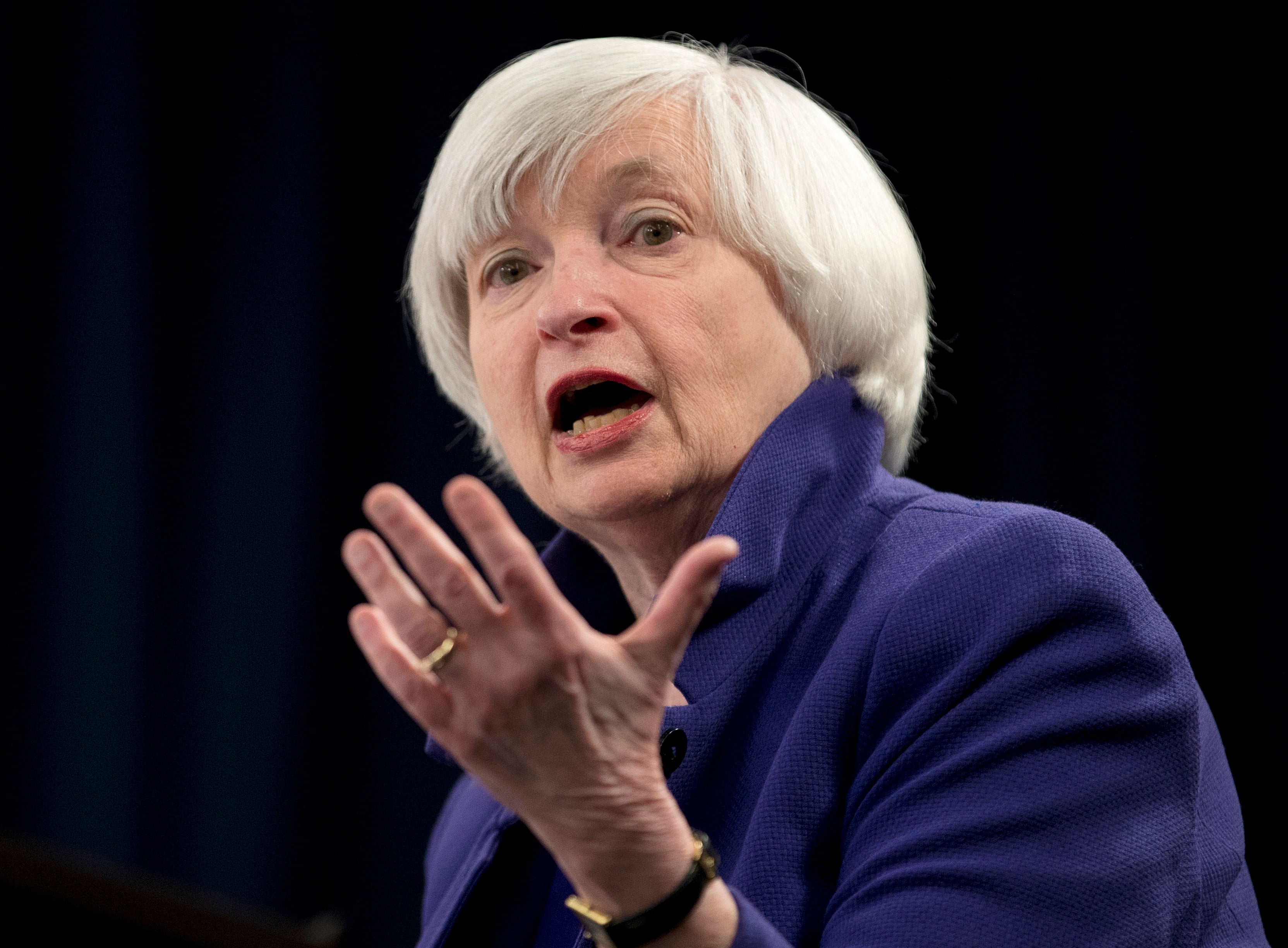Biden administration makes pitch for higher business taxes
The Biden administration is drilling down on the argument that higher corporate tax rates would ultimately help an ailing economy

Your support helps us to tell the story
From reproductive rights to climate change to Big Tech, The Independent is on the ground when the story is developing. Whether it's investigating the financials of Elon Musk's pro-Trump PAC or producing our latest documentary, 'The A Word', which shines a light on the American women fighting for reproductive rights, we know how important it is to parse out the facts from the messaging.
At such a critical moment in US history, we need reporters on the ground. Your donation allows us to keep sending journalists to speak to both sides of the story.
The Independent is trusted by Americans across the entire political spectrum. And unlike many other quality news outlets, we choose not to lock Americans out of our reporting and analysis with paywalls. We believe quality journalism should be available to everyone, paid for by those who can afford it.
Your support makes all the difference.The Biden administration is drilling down on the argument that higher corporate tax rates would ultimately help an ailing economy, saying the resulting infrastructure investments would boost growth.
Treasury Secretary Janet Yellen said Wednesday it was “self-defeating” for then-President Donald Trump to assume that cutting the corporate tax rate to 21% from 35% in 2017 would make the economy more competitive and unleash growth. Yellen said that competing on tax rates came at the expense of investing in workers.
“Tax reform is not a zero-sum game,” she told reporters on a call. “Win-win is an overused phrase, but we have a real win in front of us now.”
President Joe Biden last week proposed a $2.3 trillion infrastructure plan that would largely be funded by an increase in the corporate tax rate to 28% and an expanded global minimum tax set at 21%. Yellen said the plan would double-down on workers' skills and traditional infrastructure such as roads and bridges as well as modern infrastructure such as broadband. The increases would produce roughly $2.5 trillion in revenues over 15 years, enough to cover the eight years' worth of infrastructure investments being proposed.
Key to the Biden administration's pitch is bringing corporate tax revenues closer to their historic levels, rather than hiking them to new highs that could make U.S. businesses less competitive globally.
Trump's 2017 tax cuts halved corporate tax revenues to 1% of gross domestic product, which is a measure of the total income in the economy. Revenues had previously equaled 2% of GDP That higher figure is still below the 3% average of peer nations in the Organization for Economic Co-operation and Development, the Treasury Department said in its summary of the plan.
Yellen also said the 2017 tax cuts failed to deliver on Trump's promise of an accelerating economy. Instead, the cuts encouraged other countries to keep reducing their own tax rates in a “race-to-the-bottom” that the Biden plan believes can be halted with an enhanced minimum tax and agreements with other nations.
The infrastructure investments would increase the level of GDP in 2024 by 1.6%, according to estimates by Moody's Analytics.
But the proposal has also drawn criticism from business groups such as the U.S. Chamber of Commerce and the Business Roundtable, which argue that higher taxes would hurt U.S. companies operating worldwide and the wider economy.
The Penn-Wharton Budget Model issued a report Wednesday saying the combined spending and taxes would cause government debt to rise by 2031 and then decrease by 2050. But following the plan, GDP would be lower by 0.8% in 2050.